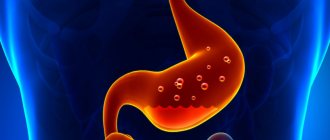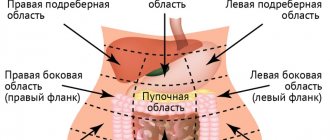Morning sickness is a sign of disturbances in the gastrointestinal tract. Such disorders arise as a result of tumor processes of different localization, intoxication, allergic reactions, and infectious diseases. The intensity of the discomfort varies from mild to severe, pronounced manifestations, which often lead to repeated bouts of vomiting and poor health.
Mechanism of nausea
The human body is a rather complex system, the slightest disturbance in which manifests itself in a wide variety of symptoms. Among them are nausea and vomiting in the morning. Regardless of the causes of the pathology, these symptoms cause discomfort to the patient and worsen his well-being.
Vomiting in the morning can indicate the development of various diseases. Moreover, the frequency of this reflex is directly dependent on the factors that cause it, the age and gender of the patient, as well as the individual characteristics of his body.
Most often, vomiting in the morning is observed in children. Slightly less common in women. In men, such a symptom occurs very rarely.
However, vomiting is not a pathology at all. It is a complex defense mechanism that unconsciously works in a person at a reflex level. Outwardly, such a process is nothing more than an uncontrolled release of stomach contents in most cases through the oral cavity, and sometimes through the nasal passages. The formation of the gag reflex occurs due to the influence of peripheral or central stimuli on a special center called the gag center. It is located in the brain. It is from here that the muscular tissues of the organs receive commands and impulses. Their performers are the diaphragm of the stomach and the abdominal press. As a result, muscle contraction occurs. This process helps to expand the esophagus and open the entrance to the stomach. The contents of this organ are pushed out, which is why vomiting occurs.
Possible reasons
Why does vomiting in the morning bother people? Anyone who has encountered such ailment only once should not worry. The only serious symptom is regular morning nausea and vomiting. Often such a reflex indicates the development of the disease. This is why you should not run to the pharmacy for anti-nausea pills. Such a measure will be far from complete. It is possible to get rid of an unpleasant symptom by eliminating the very cause of the ailment. Only a doctor can advise how to do this.
There are several reasons why this physiological condition occurs. All of them are combined into groups that relate to:
- physical changes;
- hormonal imbalances;
- development (presence) of diseases.
Thus, vomiting spasms are often observed in pregnant women. Moreover, they can bother the expectant mother not only during a certain period of gestation, but also throughout all three trimesters.
Determining causes based on characteristic signs
Constant malaise and vomiting in the morning require detailed study. This will allow us to find out the reasons for this condition.
It is worth noting that nausea and vomiting are the main symptoms that are taken into account by specialists in the process of diagnosing pathology. The following factors create the conditions for such a physiological state:
- Malfunctions of the central nervous system. The cause of this condition may be complications that arise after the patient has suffered certain infectious diseases (encephalitis, meningitis) or injuries (burns, concussions). Many people are familiar with the condition of migraine. This pathology, which causes unbearable headaches, is usually accompanied by morning sickness. It does not go away even after vomiting. Sleep and painkillers will help the patient cope with this problem. Another dangerous disease included in this group is cerebral stroke. It develops in the early morning and is accompanied by nausea and vomiting. In addition to these signs of such a formidable illness, the patient complains of dizziness and changes in blood pressure can be observed. In addition, a number of other specific symptoms arise, which depend on the location of the ischemic lesions. So, a person exhibits facial asymmetry, the tongue deviates to the side, the strength in the arm decreases, or he cannot lift one of his legs. The emergence of a walking clinic requires urgent medical attention. Disruptions in the functioning of the central nervous system also occur after traumatic brain injuries, provoking the occurrence of microdamages in the structure of the brain substance. This causes changes in the functioning of the vestibular apparatus, which is reflected in unsteadiness of gait, as well as nausea and vomiting, which does not bring relief. Such changes begin in the morning hours the next day after the injury. Making a correct diagnosis is possible after examining the patient by a traumatologist and neurosurgeon.
- Toxic effects. Nausea and vomiting in the morning occur due to existing renal or liver failure, drug or food poisoning, aggressive effects of chemical poisons, as well as benign or malignant neoplasms. The most common oncological diseases that are accompanied by such symptoms are stomach cancer (in this case, in addition to nausea, there is also an aversion to meat products, as well as a significant decrease in the patient’s weight), liver and gall bladder cancer (with this pathology, a dull pain occurs in the area right hypochondrium), pancreatic acenocarcinoma (characterized by the rapid development of wasting), dymphoma and leukemia. Vomiting in the morning often occurs due to intoxication of the body with products formed due to tumor growth. Very often, such a symptom is a complication of chemotherapy. An oncologist is responsible for diagnosing and prescribing a course of treatment when malignant tumors occur.
- Pathologies of the gastrointestinal tract. Vomiting in the morning on an empty stomach often occurs with gastritis or stomach ulcers. In this case, nausea is accompanied by hunger pain. Does not help improve your condition and food intake. After eating, nausea begins to worsen, and a feeling of fullness occurs in the stomach. Pancreatitis also manifests itself as morning sickness. Simultaneously with this phenomenon, the person feels pain in the right side of the abdomen. The condition worsens after eating spicy, fried and fatty foods.
To diagnose the causes of morning sickness in a patient, specialists pay attention to the format of the vomit, whether it contains fragments of food, particles of blood or bile. The question of the presence of odor or taste in the mouth is also clarified.
Causes
The main causes of nausea are infections, food poisoning, and head injuries. The condition of morning sickness is associated with visceral pain associated with compression, damage to internal organs (blood vessels, perivascular structures, respiratory tract). Among the possible causes of nausea, it is worth noting paresis of the muscles of the gastrointestinal tract, caused by endocrine disorders or metabolic disorders.
Other reasons: increased intracranial pressure, exposure to psychogenic factors. The causes of the condition, if you feel sick in the morning and the woman is not pregnant, correlate with obesity. In this case, many factors are involved in the pathogenesis - increased intra-abdominal pressure, compression of the walls of the stomach, reflux (the movement of fluid opposite to the natural direction), esophagitis (inflammation of the mucous membrane of the esophagus), insufficiency of the esophageal sphincter.
The esophageal sphincter is a ring of muscles that hold the lower distal (remote) portion of the esophagus in a closed position to prevent food from backflowing and gastric juices from entering the esophagus. If the muscles that form the sphincter are weakened, which is often detected in people with excess body weight, malfunctions of the gastrointestinal tract occur, causing symptoms such as nausea.
Nausea can occur as a result of a lack of sleep at night. In this case, it will become much easier for the patient if he establishes a routine and sleeps at least 7-8 hours at night. The gag reflex is characterized by rhythmic contraction of the diaphragm and intercostal muscles; the causes of the urge to vomit in the morning are associated with the activation of vomiting centers located in the area of the reticular formation of the brain stem.
The pathogenetic mechanism is triggered due to irritation of chemoreceptors, which respond to the effects of chemicals entering the bloodstream or cerebrospinal fluid. Excitation of the vomiting center of the brain occurs as a result of compression by a volumetric intracranial formation - a tumor, a cyst, a focus of hemorrhage. Vomiting in the morning often correlates with metabolic disorders or dysfunction of the excretory systems (uremia - poisoning of the body due to kidney damage).
Some diseases, including metabolic disorders, are accompanied by a process of autointoxication - self-poisoning of the body, which is why I feel sick every morning without obvious accompanying symptoms. The accumulated metabolic products enter the blood and reach the vomiting brain centers through the circulatory system, which leads to their excitation.
Autointoxication can develop against the background of hyperazotemia (increased concentration of protein compounds containing nitrogen), hypotension (decreased blood pressure), diabetic ketoacidosis (shift of the acid-base balance towards increased acidity, caused by impaired carbohydrate metabolism), hypoxia (oxygen deficiency).
The causes of attacks of nausea in the morning in men and women are associated with endotoxicosis (accumulation of products of impaired metabolism in the blood) and exotoxicosis (pathological effects on the body of substances received from the outside - with food, air, through mucous membranes and skin).
Excitation of the vomiting centers of the brain occurs under the influence of nerve impulses that arrive along afferent pathways from nerve endings located in the mucous membrane of the stomach, which is why you feel sick in the morning if there is no pregnancy. Nerve signals arrive through branches of the glossopharyngeal or vagus nerve.
Afferent signals that cause attacks, when nausea and vomiting, can come from elements of the vestibular apparatus along the branches of the auditory nerve. Manifestations intensify in people with individual weakness of the vestibular system in provoking conditions - traveling in vehicles, swimming on board a water vessel. Regardless of the causes of the condition, when you feel sick after breakfast, the condition is aggravated under the influence of provoking factors:
- Eating large amounts of fatty foods, systematic overeating.
- Physical activity immediately after eating.
- Physical and mental fatigue.
Age and gender are of great importance. Most often, patients of childhood and adolescence (7-14 years old) experience severe nausea in the morning after eating. In women, such manifestations occur more often than in the group of men. The number and intensity of attacks in female patients increases during menstruation.
The likelihood of developing attacks when vomiting in the morning is higher in patients with a certain type of nervous system. Emotional, sensitive people with increased levels of anxiety and restlessness are most susceptible to such manifestations.
Restless people exhibit increased concentrations of serotonin and catecholamines in the blood, which correlates with the development of aerophagia (a functional disorder of the stomach accompanied by swallowing large amounts of air during eating). As a consequence of aerophagia, the volume of the air bubble in the stomach increases, which leads to irritation of nerve receptors.
Taking pharmaceutical drugs
Among the reasons why you feel sick and want to vomit in the morning, it is worth noting the individual characteristics of the patient, as well as the use of pharmaceutical drugs with a similar side effect. The list of drugs that can cause nausea at night or during the day is extensive, including antidepressants, antibiotics, analgesics, sulfa and anti-tuberculosis drugs, non-steroidal anti-inflammatory drugs.
Women who regularly take hormonal contraceptive pills often feel sick after sleep. Similar symptoms occur after taking strong laxatives, antihypertensives, and medications intended to lower blood sugar levels. If the level of hemoglobin in the blood is low, iron-containing drugs are prescribed, which often causes nausea and vomiting in the morning.
Diseases of the gastrointestinal tract
A common cause of dyspeptic disorders is diseases of the gastrointestinal tract, including pancreatitis, gastritis and ulcers localized in the stomach and duodenum. Dyspeptic disorders are represented by nausea, heartburn, frequent belching, bloating, painful sensations of a spastic type in the abdominal and epigastric region.
Weakening of the muscles lining the intestinal wall and decreased muscle tone of the intestinal muscles are often caused by neuropathy (impaired nerve function). Neuropathy often develops against the background of diabetes mellitus, protein metabolism disorders or cachexia (extreme exhaustion, characterized by asthenic syndrome, a sharp decrease in body weight and a slowdown in physiological processes) associated with tumor processes.
Pregnancy
The causes of severe morning nausea in women may be associated with pregnancy, which in most cases is accompanied by a disorder in the upper segment of the digestive tract. Symptoms such as nausea, often accompanied by vomiting, most often occur in the first trimester.
Nausea is detected in 50-91% of pregnant women. In 25-50% of cases, manifestations are intense, intrusive, and maladaptive. In the pathogenesis of the disorder, the leading role is played by changes in hormonal levels and motor dysfunction of the gastrointestinal tract. Psychological and social factors can aggravate the situation.
Attacks of nausea are characterized by a short-term course and spontaneous regression without correction by medications. By the period of 12-14 weeks, the number of episodes decreases or they stop completely. In 10% of cases, symptoms persist until 22 weeks. Nausea appears in the morning and does not bother patients during the day.
Sometimes pregnant girls at a period exceeding 23 weeks of gestation experience gastric hypotension (decreased muscle tone of the gastric walls). Gastric hypotension is caused by changes in hormonal levels (decreased gastrin levels and increased progesterone production). With hypotension, the gastric fundus expands, and associated symptoms are observed - a feeling of heaviness and fullness in the stomach cavity, decreased appetite, pain in the head area, and increased fatigue.
Tumor processes
The condition of morning sickness may be associated with tumors of different locations. If the pathological focus is located near the brain stem, it compresses areas of the vomiting center, which leads to the activation of nerve structures and the appearance of corresponding symptoms. The causes of nausea and dizziness in the morning with tumors located in different parts of the body are associated with intoxication of the body - the release of toxic substances by tumor cells.
Nausea and weakness after sleeping in the morning are a side effect of chemotherapy. All pharmaceutical drugs that are used to treat cancer (Cyclophosphamide, Decarbazine, Epirubicin, Idarubicin) cause undesirable concomitant effects. In addition to nausea and vomiting, patient complaints include manifestations such as muscle weakness, discomfort in the gastrointestinal tract or other organs. Patients often have no appetite, which leads to refusal to eat and rapid weight loss.
Vomiting bile
A similar phenomenon in the morning is accompanied by the release of a yellow-green mass with a bitter taste. Vomit, which contains an admixture of bile, has a rather characteristic taste. When it appears, we can talk about problems in the functioning of the pancreas, bile ducts, and liver. Vomiting with bitterness can also occur due to:
- intestinal obstruction of various etiologies;
- problems with the operation of the valve separating the stomach and intestines;
- pathologies of the genital organs, urinary tract and liver;
- diseases of the gastrointestinal tract, including pancreatitis, ulcers, gastritis, etc.;
- disruptions in the functioning of the central nervous system (shock, injuries and diseases).
Vomiting of bile also occurs with appendicitis. In addition to this symptom, the patient feels pain in the iliac region. How to check whether appendicitis is the cause of morning sickness or not? It is worth keeping in mind that vomiting in this pathology is not the main symptom on the basis of which a diagnosis of the disease is possible. In addition to this unpleasant phenomenon, in the presence of inflammatory processes, severe abdominal pain appears. They appear suddenly or increase gradually. As a rule, they are a stabbing sensation, which is quite difficult to tolerate. That is why a person strives to lie down in such a way that the adopted position will reduce suffering. It is very dangerous if the pain goes away on its own. This may indicate the beginning of the process of death of nerve endings.
How to check whether appendicitis is the cause of the illness or not? The following signs can confirm such a diagnosis:
- loss of appetite;
- fever and chills;
- increased heart rate up to 90-100 beats per minute;
- the appearance of a white coating on the surface of the tongue.
Another sign of appendicitis is discomfort in the navel area that occurs when trying to cough, as well as an unbearable spasm that occurs when palpating the abdomen in its lower right part. The occurrence of such symptoms indicates an acute pathology, which requires immediate consultation with a doctor for surgical care.
Toxic poisoning can also provoke vomiting with bile. A similar phenomenon can also be observed in cases where previously active measures were taken to cleanse the body of toxins.
Morning vomiting accompanied by diarrhea
When a whole complex of symptoms manifests itself, the body will be affected in a more complex way. This is also observed with vomiting, which occurs simultaneously with diarrhea. In relatively healthy people, this phenomenon occurs infrequently and can be explained quite simply. The fact is that some foods are not absorbed very well by the body. This especially often happens against the background of overeating, when combining food with alcohol, and also when taking it immediately before a night's rest.
A complex combination of symptoms is also observed during the development of certain diseases. And this can be not only vomiting with diarrhea, but also abdominal pain. Most often, nausea with diarrhea occurs with:
- Infectious diseases. Among them are bronchitis, pneumonia, tonsillitis, ARVI. Morning sickness, vomiting, diarrhea and acute pain in the abdomen are caused by intestinal infections provoked by pathogenic microorganisms that enter the gastrointestinal tract with stale food or dirty hands. Reproducing bacteria release toxic substances during their life processes. Pathologies of the urinary system can also cause morning sickness with diarrhea. Thus, with infectious kidney diseases, intoxication develops, which causes an increase in body temperature. In addition to morning vomiting and diarrhea, ailments of the urinary system are also accompanied by swelling of the face, which can be observed after sleep. If such symptoms occur, you will need to consult a therapist. With an accurate diagnosis, antibiotics and sorbents will help get rid of the disease.
- Malfunctions of the digestive organs, namely the gallbladder, pancreas, kidneys and liver.
- Experienced chemical and food poisoning.
- Reactions of the central nervous system to brain injury, as well as stress.
- Side effects of medications taken by the patient.
- Toxic effects.
Identification by a doctor of a specific factor that provokes morning sickness and diarrhea will help identify the cause that affects the body in a similar way.
Vomiting immediately after waking up
Nausea on an empty stomach can be the cause of one of many pathological changes in the body.
Among them:
- Hypertension. Vomiting under pressure is accompanied by dizziness, weakness, redness of the face, headaches, fatigue and swelling. In people over 40 years of age, hypertension is a common cause of morning sickness. This disease is complicated by a crisis. This is an attack during which the pressure rises to 200/110 millimeters Hg. Art.
- Hypotension. Vomiting occurs in the morning and when low blood pressure has reached its critical level (50 mm Hg or less). This condition is accompanied by dizziness, darkening of the eyes, fainting, sudden attacks of weakness and a feeling of lack of air. To eliminate vomiting, you will need to see a therapist, who will identify its causes. And a specialist will prescribe treatment for low blood pressure based on the degree of development of the disease and the individual characteristics of the patient’s body.
- Myocardial infarction. We can talk about this disease when, during morning sickness, pain also occurs in the left side of the chest, which radiates to the left arm. In addition to nausea, the gastralgic form of heart attack is also accompanied by pain in the left and right hypochondrium, as well as diarrhea. The appearance of such symptoms requires calling an ambulance. When specialists arrive at the patient, they will perform electrocardiography, which will help determine the condition of the heart muscle.
- Pregnancy. This factor is among the main causes of morning sickness in women carrying a child. The most worrying thing for expectant mothers is the nausea in the first trimester, and it is often accompanied by heartburn.
- Pathologies of the gastrointestinal tract. Such diseases are indicated by morning sickness, which occurs before eating or drinking. Along the way, this phenomenon is accompanied by pain in the abdominal area.
- Alcohol, chemical or food poisoning.
Why do you feel sick in the morning?
Waking up every day with a feeling of nausea, which makes you refuse breakfast and take a long time to “come to your senses,” may be associated with nocturnal gastroesophageal reflux (reflux of bile into the esophagus). In itself, it is not a pathology, since normally it occurs mainly after eating and does not cause discomfort. To suppress it, the body includes compensatory antireflux mechanisms.
But if an unpleasant symptom is observed frequently and lasts for a long time, then we can talk about gastroesophageal reflux disease or diseases of the gastrointestinal tract. An abdominal MRI will help determine the exact cause and make a diagnosis.
Vomiting with mucus
There may be a certain irritant present in the stomach or other organs of the digestive tract. It provokes vomiting in the morning, which contains mucus. It is a substance that is part of the gastric juice and takes part in the processing of food products entering the body. In the process of moving through the digestive tract, this liquid acquires some viscosity and settles on the walls of the gastrointestinal tract, helping to reduce friction of food fragments moved due to peristalsis. But sometimes there is an excess of this substance in the body. It is released simultaneously with vomit. This often happens when a person consumes low-quality products in the evening. The toxic substances contained in such food provoke an instant spasmodic reaction, due to which mucus is removed from the gastrointestinal tract with vomit. This situation can also arise when drinking a large amount of alcohol and coffee for dinner.
Morning sickness with foam
The causes of this type of morning vomiting are usually caused by a neurological disease or infection. So, E. coli can provoke a similar symptom at any time. Vomiting with foam in the morning occurs due to the almost complete absence of food in the stomach. In addition to this symptom, the patient suffers from fever, weakness, and profuse sweating. Such signs indicate a negative impact on the patient’s body of cholera bacteria, salmonellosis, as well as the presence of worms. Over time, the patient begins to complain of rising body temperature and severe headaches.
In a child, morning vomiting with foam is often a sign of helminthiasis. The presence of worms in a child’s body can also be determined by his rapid weight loss.
Nausea during pregnancy
The urge to vomit is the first symptom of the onset of pregnancy. Often appears after sleep, on an empty stomach, after eating. Any time of the day, in the evenings. A woman's body experiences a hormonal imbalance.
No special treatment is required. The doctor prescribes a method for getting rid of toxicosis in order to alleviate the condition of the expectant mother. Toxicosis occurs on an empty stomach. Many people complain: “when I brush my teeth, I start gagging.” During hygiene procedures, while brushing teeth, it occurs from toothpaste. You can drink a glass of water. Choose from pastes with mint flavor.
Vomiting with fever
The presence of these symptoms indicates an increase in the amount of toxins in the patient's body. The most common causes of this condition are:
- poisoning;
- infectious diseases;
- inflammatory processes occurring in the gastrointestinal tract.
How to determine the true cause of vomiting accompanied by fever? If a similar phenomenon occurs after a heavy dinner, we can talk about food poisoning. If the patient has chronic gastrointestinal ailments, then inflammation in the organs of the digestive tract, accompanied by fever and vomiting, could be triggered by spicy foods. When taking only high-quality products, such symptoms most likely appear against the background of infectious diseases.
Nausea with weakness
Nausea, which manifests itself along with weakness, may be a consequence of intoxication. Food poisoning is more common and occurs after eating low-quality food. This condition is accompanied by pain, diarrhea, flatulence, fever, and chills.
Various diseases may well become a source of malaise. When symptoms occur immediately after eating or intensify if quite a lot of time has passed between two meals, this is a signal of the presence of chronic gastritis.
In newborns
Belching and regurgitation in infants is considered quite normal. It is observed most often after eating. However, if a child’s vomiting is observed immediately after waking up and for no apparent reason, then it may indicate:
- head injuries;
- disruptions in the functioning of the central nervous system;
- consequences of poor quality delivery;
- cold;
- violation of hygiene standards when feeding;
- poisoning;
- change of diet;
- teething;
- inflammatory processes developing in the gastrointestinal tract and appendicitis;
- intestinal infections.
What to do if the gastroenterologist did not identify any violations?
It also happens that after an examination, the gastroenterologist tells the patient that no pathologies have been identified on his part. However, such good news does not mean that the person who came with complaints is in great health.
The etiopathogenesis of nausea may be associated with:
- vascular pathologies;
- hypertension;
- diseases of the inner ear;
- endocrine disorders;
- pathologies of the brain and central nervous system;
- head injuries and post-traumatic syndromes;
- viral, bacterial and parasitic infections (often not related to the gastrointestinal tract, but affecting the lungs, ENT organs, and central nervous system).
In older children
The causes of vomiting in the morning in a child can be very different.
Among them:
- teething;
- offering the child foods that are too difficult for his stomach to digest;
- binge eating;
- vaccinations;
- contacts with chemicals (household chemicals, cosmetics);
- rotavirus infections;
- disruptions in the functioning of the central nervous system;
- the presence of parasites in the body;
- diseases of the gastrointestinal tract and hereditary pathologies.
Nausea due to disturbances in the body's endocrine system
Ginger mint tea - a remedy for nausea
The appearance of morning sickness may be associated with a malfunction of the thyroid gland - hypothyroidism.
With this disease, the amount of hormones produced decreases, which negatively affects a person’s well-being.
The following symptoms indicate the appearance of this endocrine disorder:
- freezing;
- depletion of body resources;
- poor appetite;
- memory problems and inattention.
Special medications prescribed by an endocrinologist after an examination will help restore hormonal levels.
Among women
Sick in the morning and not pregnant. Let's figure it out. What, besides the “interesting situation,” are the causes of vomiting in the morning in women? There may be several of them:
- gastrointestinal diseases;
- postoperative period;
- chemical and food poisoning;
- liver diseases;
- disruptions in the functioning of the central nervous system;
- the presence of foci of inflammation in the kidneys and urinary tract;
- gallbladder diseases;
- disruptions in the functioning of the cardiovascular system.
Among the causes of morning sickness in women is the onset of their menstrual cycle.
How to determine the exact cause of nausea?
The range of possible violations, as we see, is quite rich. Nausea can be caused by the liver, gallbladder, biliary tract, pancreas, stomach, small intestine, duodenum, lower esophageal sphincter, and gastroesophageal junction.
Problems can be caused by inflammatory processes, erosions, ulcers, cysts, tumors, and gallstones. The cause may be stenosis (narrowing) of the gastric outlet, fibrosis, cirrhosis and fatty liver degeneration (hepatosis). Patients are often diagnosed with functional disorders.
To establish the gastroenterological cause of nausea and to exclude the presence of a tumor causing dysphagia (impaired passage and stagnation of food), it is recommended to do an MRI of the abdominal cavity.
A highly informative study allows the patient not to run around to doctors’ offices, checking each organ separately. And immediately simulate a three-dimensional image of each organ, see its layer-by-layer sections. And get an idea of the overall picture: the thickness and changes in the walls of the stomach, the condition of the gallbladder, the size of the liver, pancreas, duodenum, esophagus, and track their functions in real time. MRI provides better visualization of the gastrointestinal tract than CT, so this method is preferable in most cases.
The study can be done without contrast and with contrast. In the second case, the price of an abdominal MRI will be higher, but the study will provide more accurate information on tumor tumors.
In men
The body of representatives of the stronger sex is considered more resilient and strong compared to women. However, vomiting in the morning is also common in men. The reasons for its occurrence are:
- pathologies of internal organs, including the gastrointestinal tract;
- disruptions in the functioning of the central nervous system;
- infectious diseases;
- oncology;
- frequent consumption of alcoholic beverages, including beer.
To carry out diagnostics that identify the main cause of the ailment, you will need to contact a specialist, who will recommend measures to eliminate it.
When should you seek help?
If you cannot understand why you feel sick on an empty stomach in the morning, you should consult a doctor. You should immediately call an ambulance when the patient, in addition to nausea, has a high temperature, severe pain in any area and vomiting.
After the examination, the doctor will prescribe effective treatment. It is especially important to consult a specialist in a timely manner if appendicitis is suspected, since it can worsen at any time and then surgery cannot be avoided in order to avoid peritonitis.
Acute inflammation of the gallbladder can also lead to negative consequences, therefore, if nausea occurs, accompanied by unbearable pain, fever and high temperature, you should urgently call an ambulance.
Treatment of morning sickness
Any therapy can only help if a doctor correctly diagnoses and prescribes an appropriate course of treatment, which takes into account the underlying illness and its severity.
In this case, the following groups of medications can be prescribed:
- neuroleptics, including diphenhydramine and diazolin;
- dopamine-type receptor blockers (cerucal);
- antiemetics (motilium);
- sorbents (enterosgel, polysorb, activated carbon);
- means that restore water balance (rehydron).
There is no point in self-medication. A specialist should indicate to the patient the need to use a particular drug. For example, having identified low blood pressure among the causes, treatment sometimes begins not with taking pharmacological agents at all. After all, sometimes the problem can be eliminated by changing the patient’s lifestyle. And only in the absence of the desired effect, pharmaceutical drugs are recommended.











